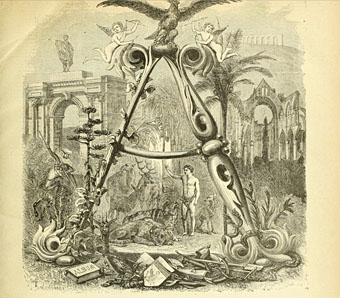
It’s no doubt true to say that they don’t make them like this any more, but it’s also likely that they didn’t make many of them like this in 1866 when the first volume of Pierre Larousse’s Grand dictionnaire universel du XIXe siècle was published. Despite the title this is a 15-volume encyclopedia, each volume of which opens with a spread showing the initial letters of the section that follows. The illustrations fill most of each page, the left-hand side displaying the section initial in letterforms or typefaces from different ages, while the right-hand side embellishes a huge decorated letter with objects or scenes sharing the same initial. These are all in French, of course, so a pig (cochon) sits under the letter C. Illustrated alphabets are an old idea, and still a very common one since they make good teaching aids. Seeing these elaborate examples makes me wonder how far back the idea can be traced.
These pictures are from an incomplete set of the books at the Internet Archive. A more complete set can be found via this Wikipedia page but the scans linked to there are all bitmap images which have lost much of their detail.
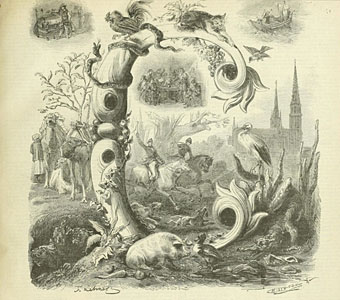
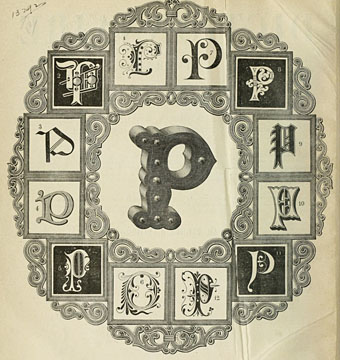
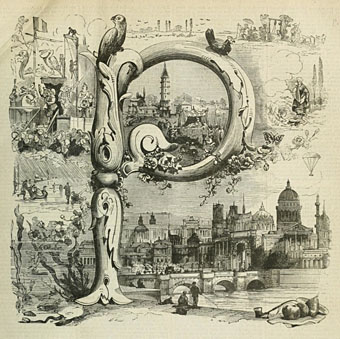
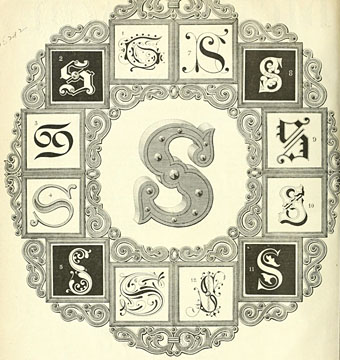
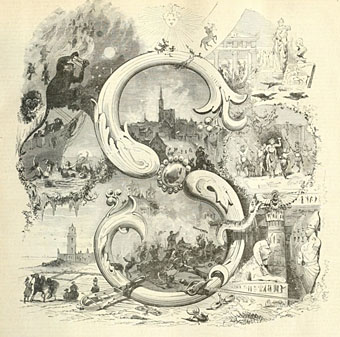
Elsewhere on { feuilleton }
• The etching and engraving archive
Previously on { feuilleton }
• Costume capitals
• Paulini’s mythological alphabet
• Joseph Balthazar Silvestre’s Alphabet-album
• Johann Theodor de Bry’s Neiw Kunstliches Alphabet
• The Book of Ornamental Alphabets
• Paul Franck’s calligraphy
• Gramato-graphices
• John Bickham’s Fables and other short poems
• Letters and Lettering
• Studies in Pen Art
• Flourishes

I presume you know the architectural alphabet by Antonio Basoli… there is a wonderful book on his series, which also contains two other series of architectural alphabets by other artists, you can get it via Abe… ‘Antonio Basoli’ Alfabeto Pittorico 1839, by Joseph Kiermeier -Debre & Fritz Franz Vogel. Ravensburger Buchverlag.
Indeed. See the next post!